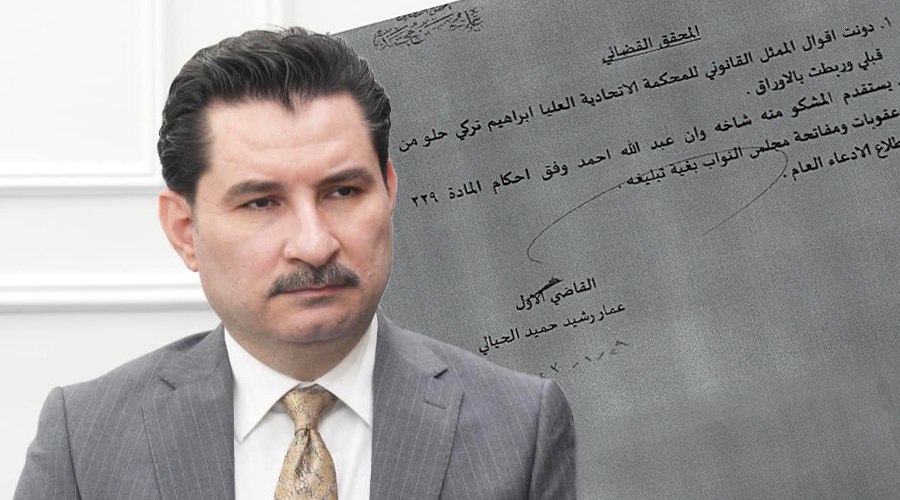A Baghdad Investigation Court issued an order on January 29 to summon Shakhwan Abdullah, the second deputy speaker of the Iraqi parliament.
The Iraqi Federal Supreme Court has filed a complaint against the second deputy speaker of the Iraqi Parliament, Shakhwan Abdullah Ahmed, a Kurd, “due to his infringement on the independence of the judiciary, and his interference in the work of the Federal Supreme Court and overstepping it and violating the sanctity of its decisions, contrary to the constitution and the law.”
The hosting order came after the Federal Supreme Court's verdict on the "unconstitutionality" of the order of the Iraqi Council of Ministers to send an amount of 400 billion Iraqi dinars to the Erbil-based Kurdistan Regional Government KRG in order to cover payroll of civil servants.
Shakhwan Abdullah, who became the second deputy speaker of Parliament within the share of the Kurdistan Democratic PartyKDP, criticized in a statement - published two days after the issuance of the Federal Court's decision - the decision stating, "The party that directed the Minister of Finance not to implement the decision of the Council of Ministers related to sending 400 billion dinars as the dues of the people of Kurdistan, is the same party that ordered a deputy to file a lawsuit against the dues of the Kurdistan Region to court against sending that amount without reading its content.”
The statement, which was posted on his Facebook page, stated, "History testifies that all ruling regimes in Iraq over the decades, including the Revolutionary Courts, fell as a result of their assault and transgression of the constitutional and legitimate rights of the people of Kurdistan."
One of the key issues led to the political deadlock between Baghdad and Erbil is oil management as in last February the federal supreme court ordered the KRG to hand over oil extracted from its territories to the federal authorities. Last June, a commercial court in Baghdad annulled the contracts between the Kurds and foreign oil firms following a judicial complaint by the Iraqi ministry of oil.
Shakhwan Abdullah’s probing order was based on Article 229 of the Iraqi Penal Code, which states that whoever insults or threatens an employee or any person entrusted with a public service, council or official body while performing their duties shall be punished with imprisonment for a period not exceeding three years or a fine.
This comes at a time when the President of the Federal Supreme Court said in a statement to the semi-official Al-Iraqiya channel that "the aim of the decision is to build the state and does not target any particular group or class of society."
The interview was published on Saturday, January 28, in which he said that the court aims to "ensure the implementation of the provisions of the constitution and not to tamper with the supreme national interests, while ensuring that the law is not violated," he added
"According to the constitution, all Iraqis are equal before the law... The citizens of the Kurdistan Region are like other Iraqis, there is no difference between those who live in Zakho, Faw, or any other part of the Kurdistan Region."
Tensions between Erbil and Baghdad have soared after that Kurds overwhelmingly voted for independence in September 2017 during the referendum held by the KRG in the Iraqi Kurdistan Region IKR and the disputed territories including the northern, oil-rich city of Kirkuk.





